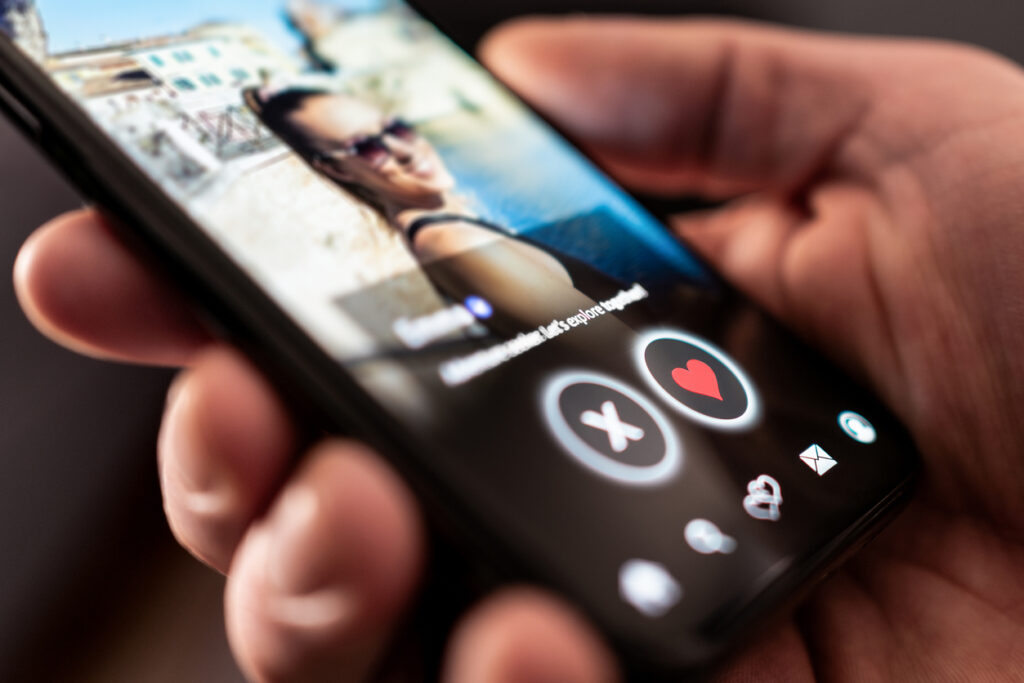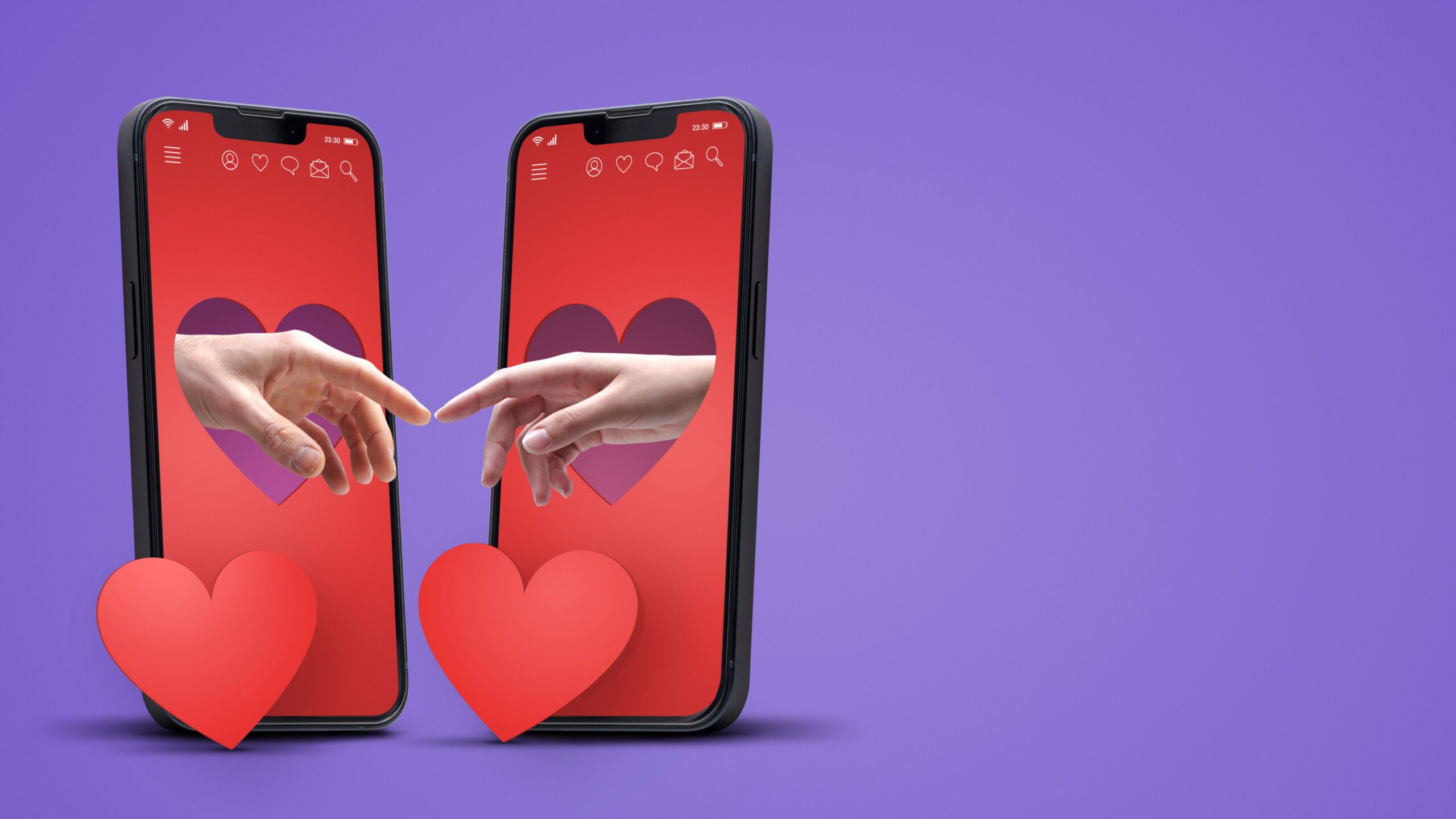You close the dating app, again. Thumb a bit tired, ego definitely bruised. No messages. Not even a ‘hey.’ Just more gym selfies, travel is their whole personality bros, and the occasional dude holding a fish from their deep-sea excursion, ‘with the boys.’
You didn’t even chat with anyone. Maybe that’s the problem?
Cue: existential spiral.
You flip back to your profile. The lighting is on point. The smile is perfection. The captions are witty (not to mention edited 12 times). You stare longer. That girl looks fun. Laid back. Confident.
Sure, it’s you—but also not. Not the version who just cried while eating cold chicken curry on the floor last week. Not the one with piles of clean laundry and a ChatGPT history of ‘how to text him back.’
But, really, is anyone actually real on here?
You sigh, toss the phone across the bed, pull the covers over your head. Maybe you’ll delete the app tomorrow. Or maybe you’ll just change your last pic—one more time.
In case you’re wondering if dating app fatigue is just in your head, a team of researchers from Flinders University put together a systematic review in the Computers in Human Behavior journal (2025) titled: “Dating apps and their relationship with body image, mental health, and wellbeing: A systematic review.”
Through 45 studies, they tried understanding how dating apps might be messing with us a bit (or a lot). If you’ve ever logged off Tinder feeling worse than when you opened it, this one’s for you!
It’s not you, it’s the algorithm
Dating apps are everywhere. They’ve completely changed how people find their romantic partners, especially if you’re under 30.
“Online dating is becoming increasingly prevalent, with many single individuals opting to use dating applications (apps) to find a romantic partner. (Zac Bowman, et al.)
And it’s easy to see why dating apps are so popular; you can meet literally thousands of humans, anywhere in the world. You can connect on your particular interests, dislikes, or hobbies. Many folks have found love and lasting relationships thanks to dating apps. In fact, according to a recent survey, 82% of adults in the US, aged 18-65, met their partner online.
But not all swipes are harmless. According to previous research, dating apps could impact how you see yourself, how you feel, and your overall mental health.
While other research looked broadly at online dating or the personalities of people using dating apps, this review focused on the impacts (body image, mental health, and wellbeing).
The authors sifted through six major academic databases and filtered out any studies that didn’t directly examine the effects of dating apps, landing on 45 research papers (a mix of quantitative and qualitative) to analyze. They followed systematic review guidelines and evaluated the quality of the studies they focused on.

What the research shows
86.4% of the 45 studies found a negative connection between dating app use and body image. That includes body dissatisfaction, eating disorders, body surveillance (like checking a mirror over and over again), and body shame.
People aren’t just comparing themselves to influencers; they’re comparing themselves to filtered, curated dating profiles. The kind you’ve probably made yourself.
In some cases, this dissatisfaction relates to risky behaviors. Multiple studies linked dating apps to possible unhealthy weight control tactics, like restricted eating, steroid use, and diet pills.
Further, almost half the studies (48.3%) connected dating apps to worsening mental health challenges, including:
- Higher depression and anxiety
- Lower mood and self-esteem
- Increased stress
The most affected group? Young adults—not necessarily because the apps are causing them more harm, but because they’re the group of folks using them the most. According to the World Health Organization, “1 in 8 [people are] currently living with a mental health disorder globally,” and 28% of those cases are people aged 15-24.
So not only are mental health challenges more common for this group, but they are also using dating apps a lot more. Rather than causing a mental health crisis, it may be co-existing with or magnifying it.
Another concern is the link between dating app use and dating app-facilitated sexual violence, particularly among women and LGBTQ+ folks. That kind of experience often leads to more anxiety, lower perceived control, and greater psychological distress.
It wasn’t all doom and gloom
Folks are using dating apps for many valid reasons, too. Like connection, companionship, or just plain curiosity. A handful of studies reported neutral or even positive effects. Users who went to dating apps for love or excitement, rather than validation, felt more stable in their self-esteem. Especially when app interactions were active (like chatting), not just passive (endless swiping).
And they aren’t just spaces to meet new people; dating apps make dating more accessible, especially for LGBTQ+ folks and people who live in small or rural communities. They are convenient and give you more opportunities to connect with others. While the risks are real, the potential for meaningful connection is why these platforms are so popular.

The research’s limits
This review relied heavily on cross-sectional studies, meaning they show associations, but not cause and effect. Are dating apps making people feel worse, or are folks already struggling more likely to use them?
Overall, the authors think the dating apps should:
- Rely less on visual content
- Moderate abuse and discrimination a lot more
- Encourage actual interaction over mindless scrolling or swiping
They even suggest age restrictions and time limits, especially for younger users who may be more vulnerable.
Ditch the doomscroll
You don’t need to delete all your dating apps; here are some ways to make your experience a bit more positive:
Take intentional breaks: Step away from the scroll and do something grounding. Like walking, calling a friend, or simply sitting in silence for a second (bonus if you’re out in the sunshine).
Dial down those filters: The pressure to look perfect is real. Try posting a photo that feels like you, no retouching. You’ve got this!
Talk it out: Whether you’re venting to a friend or getting into therapy, talking helps.
Go old-school: Gen Z is starting to back away from dating apps, looking for more IRL connections (and so should you). Try meeting new people through shared hobbies or local events.
Set real limits: Don’t just scroll—message and connect. Passive use is what tanks your mood.
The bottom line? Apps are tools. Use them, but don’t let them use you.



